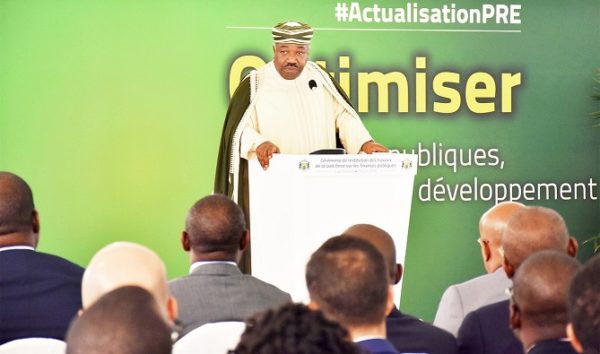The Draft Finance Bill Amending (PLFR) 2018 that has just adopted Gabon in Council of the Minister of 21 June is an exercise in severe adjustment of public spending which is not, relatively speaking and massive competition of the Europe and the international community in less, without recalling Greece. First to suffer from this remedy inspired by the recent report of the work of the Task Force on Public Finance (which brought together several executives of the administration for a month), President Ali Bongo himself, forced to reduce the staff of the Presidency. The Primature, the general secretariat of the government and all the ministries were invited to this self-amputation exercise, it seems necessary for the redemption.
Punishment seems collective in many ways. Case of this blind discount of 15% of treatment on all budgets of Institutional and other administrative authorities. The systematic denunciation of contracts by any contractor over the age of 60, including all civil servants who are still working, is more than 60 years old. Similarly, the immediate retirement of agents absent due to long-term illness.
The new amended finance law shows the effects of the three-year agreement that Gabon has concluded with the International Monetary Fund (IMF).
Upon examination of this finance law, it is clear that the first item referred to is the heading “staff costs”. Initially valued at CFAF 709.8 billion, this item amounts to CFAF 640.9 billion, in the 2018 amended budget law.
In this impetus, Gabon has even reduced the investment expenditure, set at 397.6 billion FCFA in the amended law against 455.4 billion in the original law. Free delivery costs (13.8 billion CFA francs) and social protection (9 billion CFA francs) are beyond the control of this firebrand filmmaker.
While these severe measures, which concern all services except the debt service, are necessary to bring about a return to macroeconomic equilibrium, it is not certain that Gabon, on leaving these purges and this diet severe, can regain the necessary economic recovery and the consolidation of social peace.
Antoine Lawson



